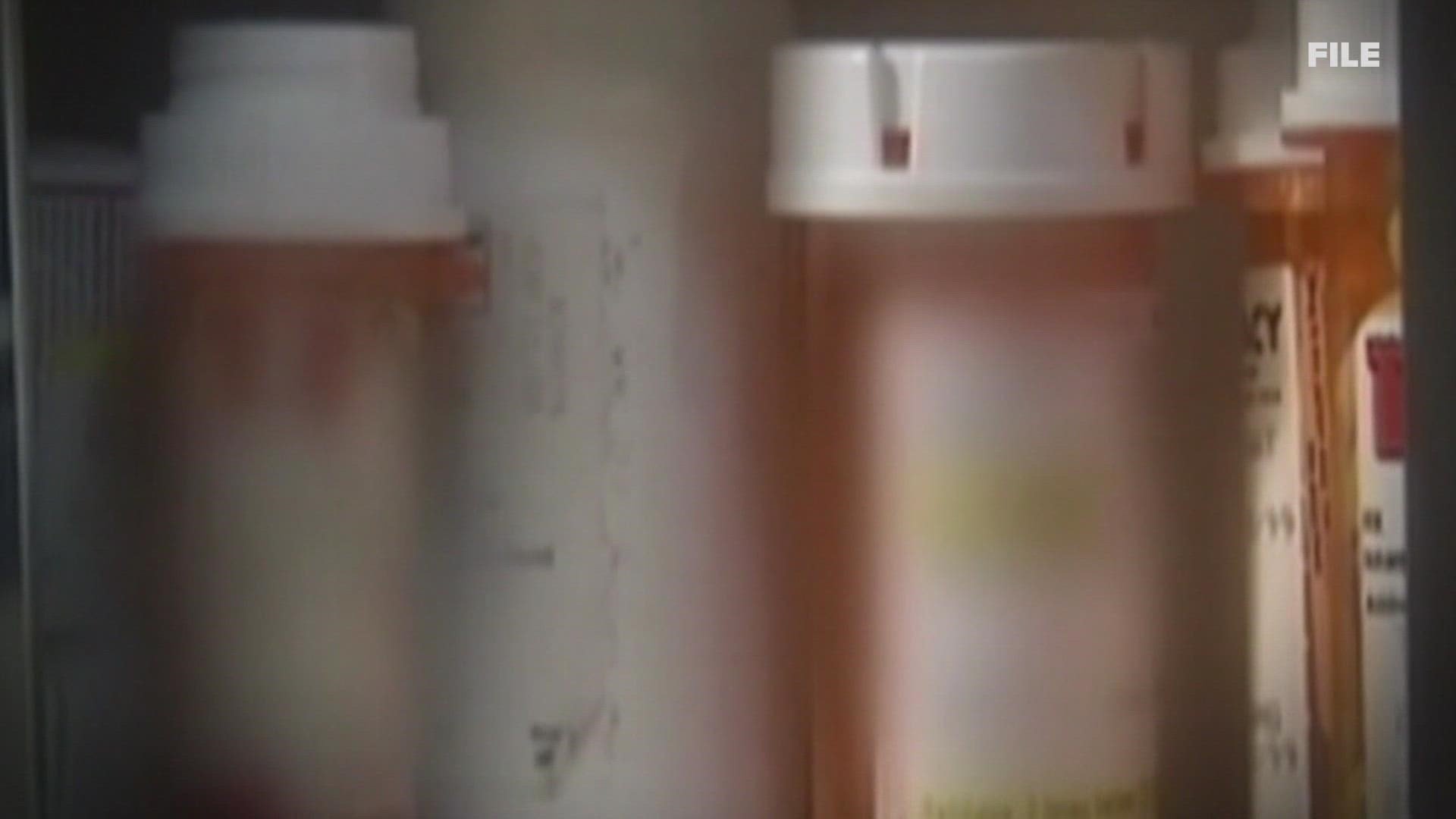AUGUSTA, Maine — Thousands of Mainers have lost their lives to opioids since the potent drugs started being prescribed decades ago.
In 2021, Maine saw a record number of 636 fatal overdoses. Totals so far in 2022 are on track to exceed that count.
There is some hope on the horizon, though. This summer, Maine secured a $130 million national settlement with Johnson & Johnson and opioid distributors. That money will be paid out over a span of 18 years. Maine Attorney General Aaron Frey said last week that the state saw its first installment of about $5 million.
"Because Maine was impacted more significantly, Maine did see a bump in the dollars that are received," Frey said, noting that Maine makes up about 0.4% of the entire U.S. population but received 0.56% of overall settlement funds.
"There probably isn’t a single person in Maine that hadn’t been impacted in some way by the opioid crisis," Frey said.
Frey said this month, the state also established the Maine Recovery Council, a group of 15 community members from all corners of our state who will be responsible for deciding how half of the total settlement funds are spent. The attorney general added they come from all backgrounds — from people professionally-involved in addressing the opioid epidemic to law enforcement officials to family members of those battling addiction.
"The thing about an opioid addiction is it doesn’t discriminate," Frey said. "It doesn’t matter how rich you are, how poor you are, your demographics. If you are suffering from an opioid addiction, it can be anywhere."
The attorney general said his office will determine how to spend 20 percent of the settlement funds, and litigating "political subdivisions" (or cities and towns) will take over the remaining 30 percent. One of his primary goals is to make sure the money is spent where it's supposed to be spent, according to Frey.
"It was important that we set this up so not only is this resource protected for the purposes that the settlement called for — abatement — but also to provide transparency that’s going to be important for people to know what’s going on," Frey said.
Rep. Lydia Crafts, D-Newcastle, is one of the members of the Maine Recovery Council. She's a licensed clinical social worker and lost her cousin to a fatal overdose one year ago. Her time spent advocating is one reason she asked Speaker of the Maine House Ryan Fecteau to appoint her to the council.
"I think the cost should be felt by the pharmaceutical company, and [a] message should be sent that our communities won't stay quiet, that we won’t allow this to happen without some consequence," Crafts said.
Crafts added she thinks there needs to be a new "playbook" in addressing the opioid epidemic, which she calls a public health crisis.
"It’s got to be a multi-tiered approach. We have to start at the foundation [that] people's lives are worth saving," Crafts said, later adding, "There’s no dollar amount we could ever invest that will change the devastation that our families and communities have felt."
Eric Girard knows that struggle all too well. He experienced addiction while living in Massachusetts before moving to Maine 15 years ago to get clean and start lasting recovery. He started the nonprofit The Family Restored to help families whose loved ones are battling substance use disorder and provide scholarships to people who can't afford recovery programs.
Girard said addiction can happen to anyone. He said he came from a loving home with no trauma and was a good student and successful athlete — but he began to use harder drugs as a young person and found the cycle hard to stop.
"I [was] doing all these things that I knew in my core I shouldn’t be doing, and I don’t want to be doing — and despite those feelings, I find myself using again within a matter of hours," Girard said.
Girard said he thinks the isolation of the pandemic negatively affected people's recovery progress. It's why he's hoping the settlement money will be used for more in-person treatment options.
"I really have seen a much greater need for more detox, more residential treatment, more recovery housing," Girard said.
Frey said the Maine Recovery Council is expected to host its first meeting next month.

